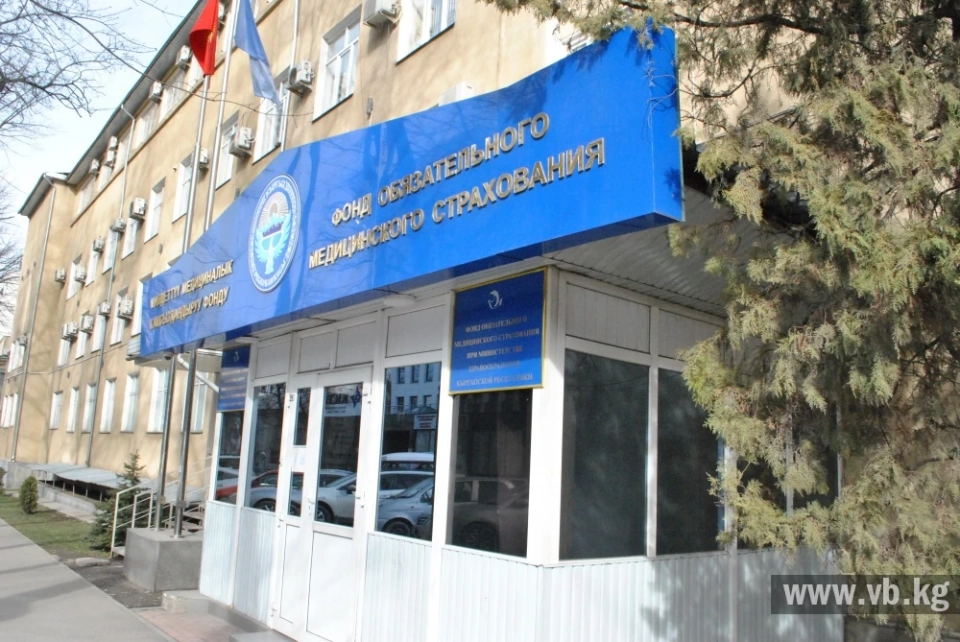However, as it became known from one of the private insurers, foreign students are now required to obtain a compulsory health insurance policy costing about 12,000 soms and to receive medical services exclusively in state institutions. Otherwise, they face fines.
The Deputy Chairman of the Compulsory Health Insurance Fund, Sanjarbek Isaev, explained to the editorial staff of Kaktus.media the reasons for such requirements.
Since the beginning of this year, the General Prosecutor's Office has been conducting checks on compliance with legislation in the field of health insurance for citizens of Kyrgyzstan. During these checks, medical universities and faculties were analyzed for compliance with the law. It turned out that some universities actively require foreign students to obtain annual or semi-annual compulsory health insurance policies, while others show negligence, underreport the number of students, or do not monitor the presence of insurance policies at all. These problems were identified during inspections by the General Prosecutor's Office, which led to warnings being issued.
There are more than 90 universities in the country where foreign students study in various specialties. The Compulsory Health Insurance Fund has signed contracts with these institutions, according to which foreign students are required to obtain policies and receive medical assistance in state institutions at their place of study. After the inspections, the situation improved, and now more than 90% of foreign students have health insurance policies.
- How can you demand compliance with the law if there are no sanctions?- Let me explain. Not all violations should be punished with fines; however, this does not exempt citizens (including foreigners) from fulfilling obligations under the laws. For example, a citizen of Kyrgyzstan who is unemployed and does not make contributions is also required to have health insurance. This is a general requirement.
The law from 1999 clearly defines the categories of citizens who are required to have a compulsory health insurance policy. This includes citizens who are unemployed. Employees are generally already insured and are in the database. For children, pensioners, people receiving benefits, military personnel, and the unemployed, the state makes contributions – they are also included in the database. The self-employed are required to independently obtain health insurance.
Thus, the absence of punishment does not imply the absence of obligations.Based on these norms, we conclude contracts with universities that stipulate that foreign students must have a compulsory health insurance policy. Universities provide information about the number of students and the number of issued policies to the territorial offices of the Compulsory Health Insurance Fund for monitoring compliance.
In recent years, there has been a growing interest in health insurance policies. People realize that it is better to obtain insurance in advance, as the absence of a policy can lead to high costs. For example, without insurance in a hospital, a patient will pay the maximum co-payment amount – about 16-17 thousand soms, while with a policy it will cost approximately 1,700 soms.
- How is the quality of medical services? Is there monitoring?- Quality monitoring is conducted not only within the framework of compulsory health insurance – this is one of the main tasks of the Compulsory Health Insurance Fund. We check medical institutions using evaluation forms of about 100 pages. This applies to all organizations with which contracts have been signed – a total of 182. Each institution is checked twice a year. The form includes many questions: the availability of necessary premises, equipment, medications, compliance with sanitary standards and clinical protocols, as well as conducting patient surveys about the quality of services received.
The final score is 1,000 points. If someone receives 200-300 points, this is a signal of serious problems. Fortunately, we do not have such cases; mostly institutions receive more than 600-700 points.
Medical experts from territorial offices check institutions every six months, compile reports and recommendations. If there are deficiencies, for example, in the provision of medications or compliance with sanitary standards, these materials are submitted for consideration to the Ministry of Health's board, where measures are taken or instructions are given to the management of medical institutions.
- The Minister of Health proposed to increase insurance contributions: for workers to pay 2%. What are the consequences?
- This proposal was put forward last year and is currently under discussion. At present, employees do not incur financial costs, as their employer pays for them. We propose a phased increase in contributions – by 1% per year, so that ultimately it amounts to 2% from the employee and 2% from the employer. This will increase the budget of the Compulsory Health Insurance Fund and, as expected, expand the range of services for the insured, for example, including annual MRI scans or some expensive surgeries covered by compulsory health insurance.
However, this requires approval from the Ministry of Finance, the Ministry of Economy, the Social Fund, and others, then a decision by the cabinet of ministers, discussion in parliament, and the president's signature. The issue is still under discussion.
There is a concern that in the context of low salaries, citizens will react negatively to an increase in expenses by 2%.














